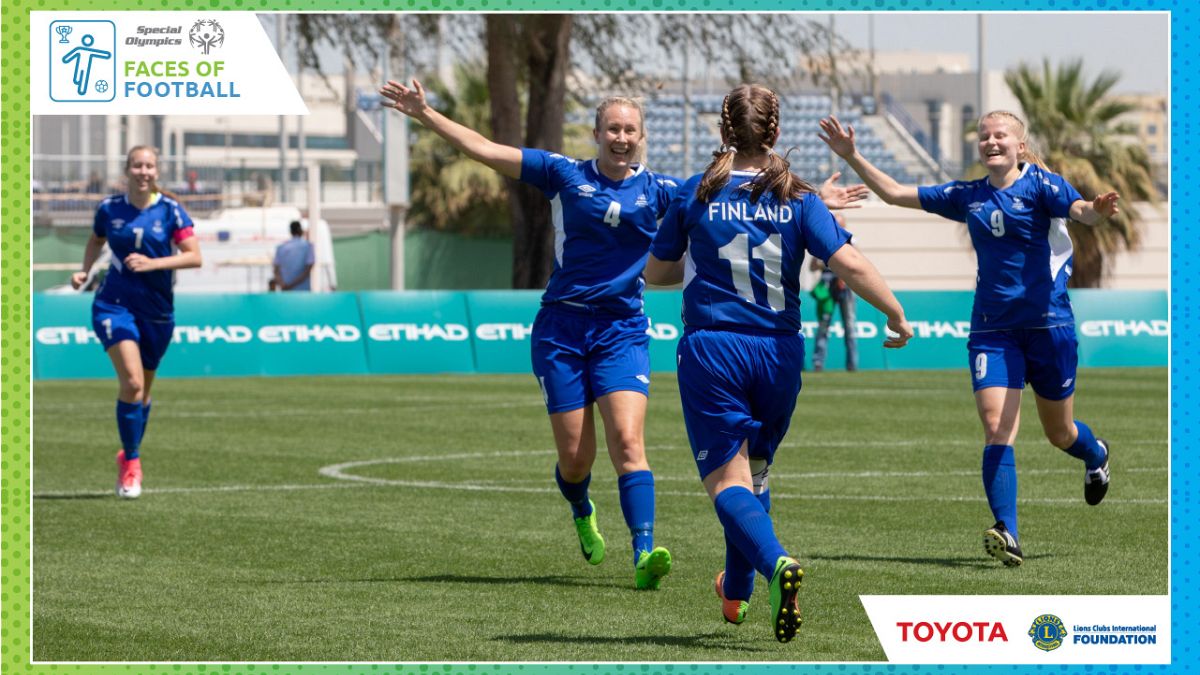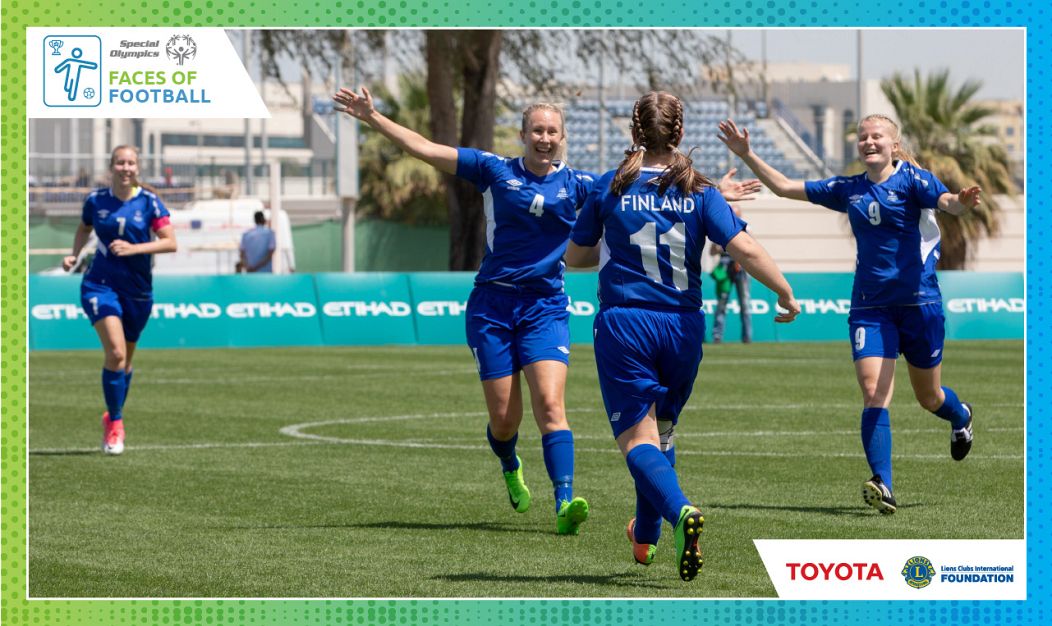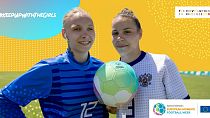The Faces of Football initiative has gone online to help boost the health and spirits of thousands of athletes across Europe with intellectual disabilities.
For more than 50 years, the Special Olympics movement has been empowering people with an intellectual disability (ID) to use sports as a tool to lead happier, healthier and more fulfilled lives. Playing a sport challenges the body, trains confidence, builds strength and brings joy. Playing a sport while dealing with an ID does the same and more. Through sports, people with ID can focus on their many abilities rather than their disabilities.
Globally, there are about 200 million people living with a form of ID but the number engaging in sports has been on the rise in recent years. In 2019, more than 6.7 million people from all continents took part in Special Olympics training, Olympic-style Games and competitions across a wide range of sports.
In Europe alone, there are more than 540,000 athletes with intellectual disabilities benefiting from the Special Olympics sport rosters.
Going online
But in early 2020, disaster struck. The spread of COVID-19 brought all Special Olympics events to a shuddering halt. Lockdown measures because of the pandemic changed all of our lives, with social interactions almost at a standstill and access to health and other basic services severely delayed or even impossible. Many people with ID – already marginalised by society – saw their daily lives made even more challenging.
Special Olympics’ recent survey on the effect of the pandemic on its community shows that 20 per cent of Europe and Eurasia-based athletes did not have enough food during the pandemic. It also found that 15 per cent of athletes did not have a safe place to live and 37 per cent of school-aged athletes lacked access to education or remote learning. Intellectual disability can also come with other underlying health conditions, making people with ID more vulnerable to the COVID-19 virus.
The Special Olympics movement knew it had to take action to prevent its athletes from becoming more isolated than ever before and losing the progress they have made in the last few years. The organisation decided to move online to stay in touch with athletes and help them protect themselves against COVID-19 by doing sports at home.
Almost 70 per cent of athletes in Europe and Eurasia have benefited from online activities so far. Online sports activities have become hugely popular, with Virtual Games taking place across the region – from Belgium to Romania.
The new #FacesofFootball digital platform is one of Special Olympics’ key moves online, aiming to allow thousands of football players with ID across Europe and Eurasia to keep the ball moving, albeit remotely.
“Faces of Football offers an innovative platform upon and through which Special Olympics athletes, their peers, families, coaches and supporters can create sustained connection during these difficult times, while harnessing the benefits of staying active, physically fit, and promoting the great and universal sport of football,” says David Evangelista, President and Managing Director of Special Olympics Europe and Eurasia.
Staying connected
#FacesofFootball is a pioneering digital hub which allows athletes with ID to boost their passing, dribbling, or shooting skills with the help of coaching videos, gaining points for their teams as they go. While the platform keeps the game going, it’s also a social hub, allowing athletes to keep in touch with their teammates, coaches, and fans.
“Football is what is important to me, it is what keeps me happy. I miss being part of a team with the lads,” says Joe McKenzie, Special Olympics GB player.
“I love leading the group on and off the pitch, so not having everyone together is disappointing. Faces of Football helps when you can’t get to training. You can go on the website, watch some videos, and try it at home or out on a field to improve your skills or to just enjoy playing football.”
So far, almost 2,500 people from over 50 countries have joined the platform. They are currently training and benefiting from the connection of an online community and friendly international competition.
Coaches are also joining their teams on the platform, motivating their players and providing extra support throughout the pandemic.
“Faces of Football reminded me how beautiful and varied the world of Special Olympics is,” says Andrea Siddi, football coach for Special Olympics Italy.
“I’d like to think that behind every training and exercise lies the core of Special Olympics, what I love most about the movement: feeling part of a community,” he adds. “That feeling encourages you to do better and overcome obstacles, just like each exercise brings you a step closer to mastering a skill.”
Whether you’re a player, coach, fan, or simply a football enthusiast, you are invited to join #FacesofFootball and discover the thriving community of people pumping energy, effort, and humour into sports. All while leveraging the platform to better manage personal challenges and the wider health and socio-economic crisis.
Sign up and add yours to the many faces of football – men and women of all backgrounds and abilities. As Special Olympics Netherlands footballer Suzanne van den Einden concludes;
“The campaign gives me the opportunity to show the world the real face of women playing football, while being in contact with football-minded people and training at home.”
To create your exclusive Football Card and represent your country, sign up for Special Olympics #FacesofFootball here.


